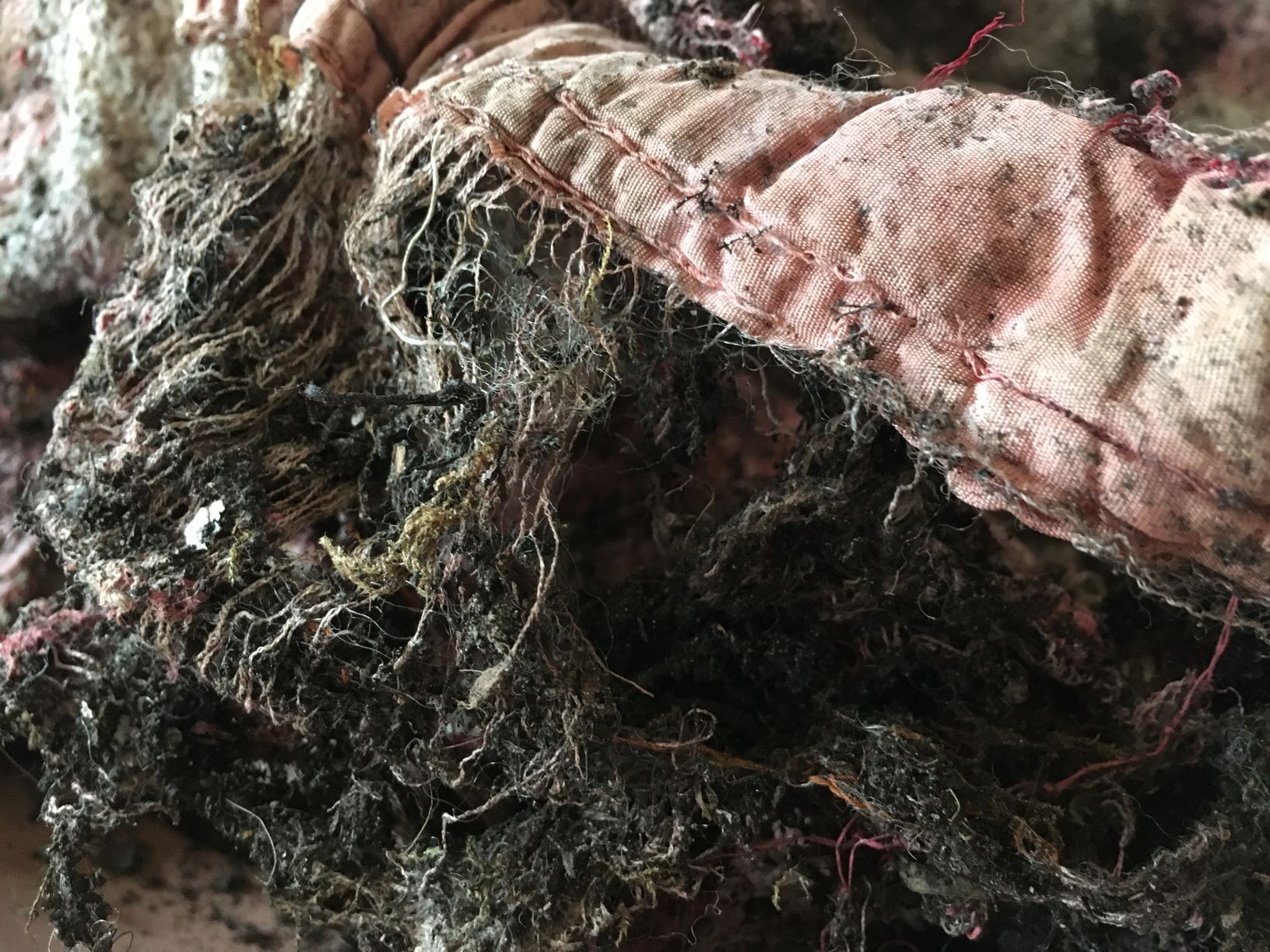
How to make space? Having a studio space for a few weeks in CAMPO in Gent to be able to build prototypes and work things out spacially and visually makes a huge difference. We worked on building a prototype space that is also a process, a space for the Unreliable Archives. It was a joy to work with scenographers: Saskia Louwaard en Katrijn Baeten and to watch them wordlessly creating magic together.
These were the questions I gave them as a starting point:
How to create a space that is also a process?
How to create a space for transformation?
How to invite people into a space so they feel welcome, curious & their senses are open?
How to create a listening space? A touching space? A space that wants you to add things or respond?
How to create a brave space: where comfort & discomfort are in fruitful tension?
How to create a space where encounters between material, histories, stories and entities is built in to how you move through the space?
How to create a space a space which is performative, in that it does things & encourages you to do things (in the broadest sense)?
How to create a space that is ridiculously personal (to me), but at the same time accessible so people can see and feel their own memories and associations?
How to focus on the light and air in a decomposition/ transformation process without avoiding the dirt?
How to create a space which is re-composing?
How to make a polyphony of different voices visible/palpable in the space?
How to create a space where people want to read aloud the sentences they see integrated in the space & possibly reconstitute new conversations and combinations of words?
It was also a privilege to work with fabulous performer Célia Fechas on the texts, to experiment with live translation and to record her voice for some of the sound stories.
Charlotte Peys was also in the Archives picking up where we left our ongoing conversation with stones and lines. Always a joy.
The space is gathering more and more stones and rocks. The stories have become stone stories. The layers are topological and geological. How to make room? is a question asked many levels: How to take up space? How to give back space, land, stolen goods? How to re-root ourselves in different ways in our environment and in relation to each other? What is buried in the ground, what happens when you bring it out into the light and how is it or can it be transformed? What rituals do we need to do this?
The dramaturgy of The unreliable Archives: the invitation to the audience, the rituals, the texts and the polyphonic sound in the space will be the focus of my last residency for 2021 in Kaastudios with Workspace Brussels in september.
After all the hard work in the heat and rain of june, we invited a few people into the prototype space. We asked them to give honest feedback about what the space does, what they thought worked and what they missed. This was useful to see what I do and do not want: What is important and what I have overlooked. More on this in the next post.
Here are a few photos from the residency in CAMPO.


















Thanks to Marika Ingels, kristof Blom, Pol Heyvaert and all the CAMPO crew for making us feel at home and for your ongoing support of my artsitic research. Thanks to Kopano Maroga, Sophie Desomere, Helena Elshout, Jacky Klune, Fabian Espinosa Diaz, Inez Louwagie, Sabine Declercq, Charlotte Peys, Enrica Camporesi, Bea Van Robaeys, Lieslot Siddiki, Hannelore Siddiki, Hans Roels, Tine De Moor, An Gordier, Barbora Wouters, Stef Peters, Caroline Van Peteghem for support and /or visiting the Archives and giving your honest feedback. Thankyou to all the people I interviewed in South Africa and my family, your stories are mixing and turning to stone, or liquid gold. They are coming to life in the Archives, unreliably of course.













































































